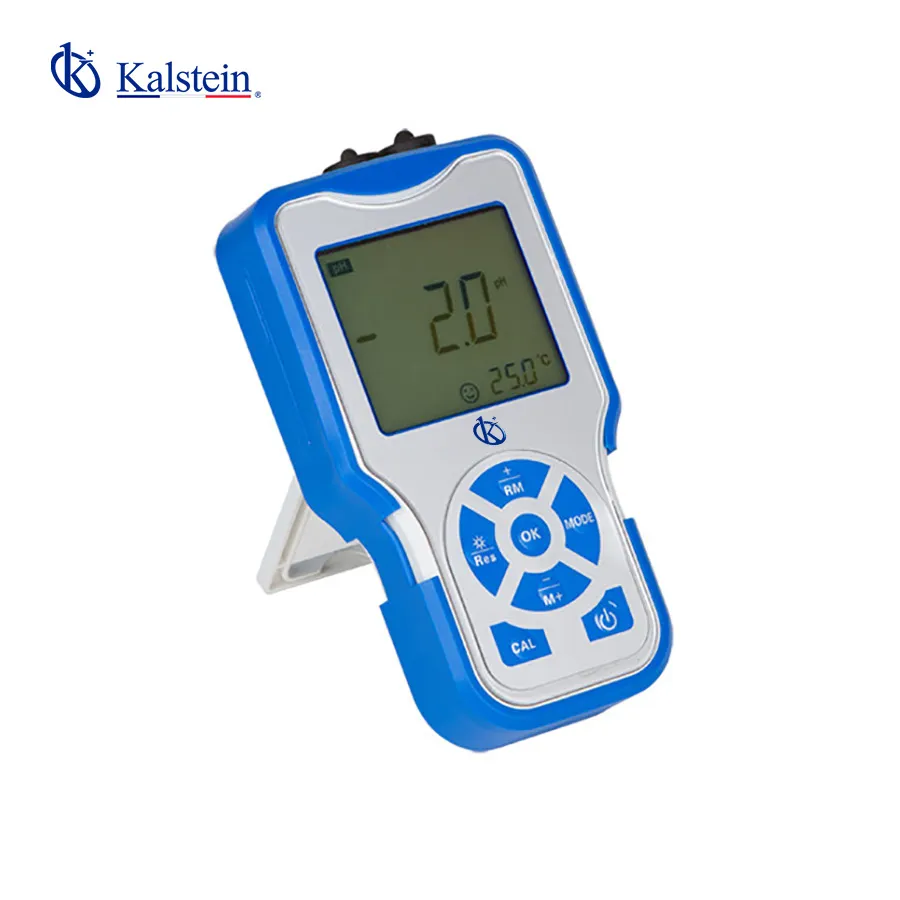Ion meters are essential devices in modern laboratories, used to measure the concentration of ions in solutions. This article will guide you through the process of selecting the right ion meter for your needs, highlighting key features, benefits, and comparisons among the best options on the market.
If you want to explore the high-end product catalog we have for you at KALSTEIN, visit us at https://kalstein.de/category-product/laboratory-line/ion-meter/. We assure you that through our easy and feasible online PURCHASE channels, you will find the best prices in the MARKET. We remind you that we at KALSTEIN MANUFACTURE high-level Laboratory Equipment for SALE. https://kalstein.de/
1. What is an Ion Meter and Why Do You Need It?
An ion meter is a device designed to measure the concentration of specific ions in a solution. These ions can be of different types, such as sodium, potassium, calcium, among others. Accurate ion measurement is crucial in various applications, from scientific research to quality control in the food and pharmaceutical industries.
Having a precise and reliable ion meter in your laboratory ensures that you can perform detailed and accurate analyses, which is essential for obtaining reproducible and valuable results. Ion meters can help identify contaminants, monitor biological and chemical processes, and ensure the quality of final products.
2. Key Features to Consider When Buying an Ion Meter
Measurement Range and Accuracy
The measurement range and accuracy are two of the most important features to consider. Ion meters must be capable of measuring a wide range of ionic concentrations with high accuracy. Check the device specifications to ensure it meets the requirements of your specific application.
Ease of Use and Calibration
Ease of use is another crucial factor. Look for a meter that is easy to calibrate and operate. Calibration is vital to maintaining the device’s accuracy over time. Some ion meters offer automatic calibration, which can save time and reduce errors.
3. Advantages of Using a Quality Ion Meter
Precise and Reliable Results
One of the main benefits of using a high-quality ion meter is the precision and reliability of the results. A good ion meter will minimize errors and provide accurate data, which is essential for scientific research and industrial applications.
Efficiency and Time-Saving
Modern ion meters are designed to be efficient and easy to use, which can save time in the laboratory. The ability to perform quick and precise measurements without extensive preparation or complicated processes increases laboratory productivity and efficiency.
4. Comparison of Ion Meters on the Market
Below is a comparison table of some of the best ion meters available on the market, including the Kalstein Ion Meter. This table highlights the main features of each model to help you make an informed decision.
|
Brand and Model |
Measurement Range |
Accuracy |
Calibration |
Ease of Use |
Additional Features |
|
Kalstein K-ION-01 |
0.1-1000 ppm |
±0.5% |
Automatic/Manual |
High |
LCD Screen, Internal Memory |
|
Brand A Ion Meter X |
0.5-2000 ppm |
±0.8% |
Manual |
Medium |
USB Interface, Analysis Software |
|
Brand B IonPro 3000 |
0.2-1500 ppm |
±0.6% |
Automatic |
High |
Integrated Temperature Sensor |
|
Brand C IonoCheck 200 |
1-3000 ppm |
±1.0% |
Manual |
Low |
Portability, Rechargeable Battery |
|
Brand D IonMaster Plus |
0.1-2500 ppm |
±0.4% |
Automatic |
High |
Bluetooth Connectivity, Mobile App |
5. How to Choose the Right Ion Meter for Your Laboratory
Evaluation of Specific Needs
Before selecting an ion meter, it is important to evaluate the specific needs of your laboratory. Consider the types of samples you will analyze, the range of ionic concentration you need to measure, and the required level of accuracy. This will help you identify which features are essential in an ion meter.
Budget and Cost-Benefit Analysis
Budget is always an important factor in decision-making. While high-end ion meters can be expensive, their accuracy and durability can offer a better return on investment in the long run. Compare the features and prices of different models to find the one that best fits your budget without compromising quality.
6. Tips for Efficient Use and Maintenance of Your Ion Meter
Regular Maintenance
To ensure the longevity and accuracy of your ion meter, regular maintenance is essential. This includes cleaning the electrodes, periodic calibration, and proper storage of the device when not in use. Follow the manufacturer’s recommendations for the specific maintenance of your model.
Training and Best Practices
Training staff in the correct use of the ion meter is crucial to obtain accurate results and prevent damage to the equipment. Ensure that all users understand how to calibrate, operate, and maintain the device. Implementing best practices in the laboratory will also contribute to the efficiency and accuracy of measurements.
Selecting the right ion meter for your laboratory is a critical decision that can affect the quality of your results and the efficiency of your operations. Carefully consider key features such as measurement range, accuracy, and ease of use, and compare the best options available on the market. Kalstein ion meters stand out for their high precision and advanced features, making them an excellent choice for any modern laboratory. By following this buying guide, you will be well-equipped to make an informed decision and optimize your laboratory’s performance.
Remember that investing in a quality ion meter not only improves the accuracy of your analyses but also increases the productivity and efficiency of your laboratory. Make an informed choice and take your ionic measurements to the next level!

